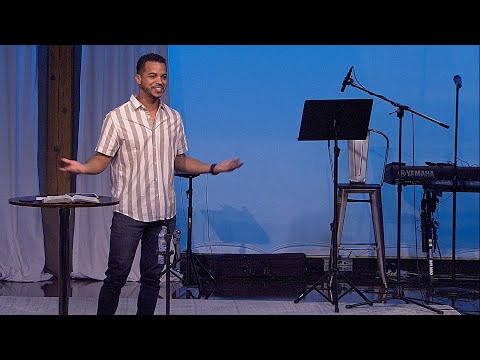James Bible Study Resources
Find resources to help you walk through your study in James.
Follow the Sermon Series
-

December 11, 2022
Series: James
Speaker: Pastor Chris Welty
-

December 4, 2022
Series: James
Speaker: Pastor Chris Welty
-

November 27, 2022
Series: James
Speaker: Pastor Nathan Wicker
-

November 13, 2022
Series: James
Speaker: Pastor Nathan Wicker
-

November 6, 2022
Series: James
Speaker: Pastor Chris Welty
-

October 30, 2022
Series: James
Speaker: Pastor Chris Welty
-

October 24, 2022
Series: James
Speaker: Pastor Matt Pattison
-

September 25, 2022
Series: James
Speaker: Pastor Chris Welty
-

September 18, 2022
Series: James
Speaker: Pastor Nathan Wicker
-

September 11, 2022
Series: James
Speaker: Pastor Nathan Wicker
-

September 4, 2022
Series: James
Speaker: Pastor Nathan Wicker
-

August 28, 2022
Series: James
Speaker: Pastor Chris Welty
-

August 21, 2022
Series: James
Speaker: Pastor Chris Welty
Series Overview
Introduction to James
Content used from Pastor Chuck Swindoll (https://insight.org/resources/bible/the-general-epistles/james)
Who Wrote the Book of James?
While James did not specifically identify himself as to which “James” he was (James 1:1), the author is widely thought to be James the half-brother of Jesus. James was not a follower of Jesus during the Savior’s time on earth (Mark 3:21–35; John 7:5) but eventually became an apostle in the vein of Paul, as one who had seen and believed the Lord post-resurrection (1 Corinthians 15:7; Galatians 1:19). After witnessing the Lord’s resurrected body, James became one of the leaders of the church at Jerusalem. Peter singled him out among the other Christians there following Peter’s miraculous release from prison (Acts 12:17). James made the deciding speech at the Jerusalem Council (15:13–22), and Paul called James one of the pillars of the church (Galatians 2:9).
Why Is James So Important?
The book of James looks a bit like the Old Testament book of Proverbs dressed up in New Testament clothes. Its consistent focus on practical action in the life of faith is reminiscent of the Wisdom Literature in the Old Testament, encouraging God’s people to act like God’s people. The pages of James are filled with direct commands to pursue a life of holiness. He makes no excuses for those who do not measure up. In the mind of this early church leader, Christians evidence their faith by walking in certain ways and not others. For James, a faith that does not produce real life change is a faith that is worthless (James 2:17).
What is the Big Idea?
In the opening of his letter, James called himself a bond-servant of God, an appropriate name given the practical, servant-oriented emphasis of the book. Throughout the book, James contended that faith produces authentic deeds. In other words, if those who call themselves God’s people truly belong to Him, their lives will produce deeds or fruit. In language and themes that sound similar to Jesus’s Sermon on the Mount, James rails against the hypocritical believer who says one thing but does another.
For James, faith was no abstract proposition but had effects in the real world. James offered numerous practical examples to illustrate his point: faith endures in the midst of trials, calls on God for wisdom, bridles the tongue, sets aside wickedness, visits orphans and widows, and does not play favorites. He stressed that the life of faith is comprehensive, impacting every area of our lives and driving us to truly engage in the lives of other people in the world. While James recognized that even believers stumble (James 3:2), he also knew that faith should not coexist with people who roll their eyes at the less fortunate, ignore the plight of others, or curse those in their paths.
Study Schedule
Week 1
Introduction to James
Week 2
Trials & Wisdom – James 1:1-11
Week 3
Blessed Under Trial – James 1:12-18
Week 4
Hearing & Doing – James 1:19-27
Week 5
Discrimination in the Family of God – James 2:1-13
Week 6
Living Faith & Loving Action – James 2:14-26
Week 7
Controlling the Tongue – James 3:1-12
Week 8
Living with Wisdom from Above – James 3:13-18
Week 9
Faith & Humility – James 4:1-12
Week 10
Depending on God – James 4:13-17
Week 11
Ungodly Riches, Kingdom Wealth – James 5:1-6
Week 12
Patient Endurance & Coming Judgment – James 5:7-12
Week 13
Care for One Another – James 5:13-20
Bible Plans on YouVersion

James Challenge
7 days

James: Faith/Works
13 days

Love God Greatly James
27 days
Make Fellowship of Believers My Church on YouVersion
Studies on Right Now Media

James for Men
Vince Miller

The Book of James
Francis Chan

The Book of James
Robert Emmitt
A Right Now Media account is free through our Church. Please register here if you need an account.

